- Home
- Isaac Hooke
Planet Killer (A Captain's Crucible Book 4) Page 2
Planet Killer (A Captain's Crucible Book 4) Read online
Page 2
two
A chime sounded on Jonathan’s aReal. He sat up in his bunk, arranged himself so that he was comfortably seated, and then connected to the indicated conference. He entered the access code his attorney had sent to his inbox, and in moments the steel cell vanished, replaced by the gray trial room. The virtual representation wasn’t much bigger than the cell, with the squarish compartment coming in at maybe four times the size.
His eyes were drawn to the cherrywood bench at the front of the room. Upon a dais sat the virtual representation of the president of the court, Captain Nefarian. The captain was definitely not a fan of rejuvenation treatments. Wrinkles plowed his forehead so that the skin looked like the disheveled comforter of an unmade bed, and the skin around his eyes and lips was equally marred by crow’s feet and smile lines. His whitish-gray, thinning hair was parted to one side, revealing a thick line of white scalp. His nose ended in a fierce point, his eyes glared beneath thin brows, and his red lips stood out upon his otherwise pale, bloodless face. A small pouch of skin formed a wattle underneath his chin, and his eyes were sunken so that deep shadows surrounded them.
No one was that pallid. Not when the light sources all contained a small UV spectrum element, as per fleet standards. Unless the captain had disabled that setting in his work environment. Then again, Nefarian’s features could have been an exaggeration, or a complete illusion, his avatar deliberately crafted for the virtual environment to make him appear as stern and forbidding as possible. Still, he looked basically the same as the profile picture Jonathan had seen in his file, but that photo may have been digitally altered, too.
Nefarian’s lips were twisted in a caricature of disgust as he regarded Jonathan. He seemed to look down on him from the heights of that long nose. According to his file, he was a former destroyer commander. Why he had been transferred out of that command, Jonathan didn’t know. When Jonathan had executed a search on the name, he discovered Nefarian was the cousin of a senator who had resigned after being caught sending illicit messages to an underage girl. Whether or not the fallout from that scandal had reached Captain Nefarian, Jonathan couldn’t say, but there didn’t seem any other reason the man had been beached.
The navy can be a cruel mistress. Look at what has happened to me, after all.
The stars and planets of a United Systems flag adorned the wall behind Nefarian, set between two large windows in the virtual environment. Beyond those windows resided a beach of white sand, with palm trees overlooking a bay of pristine blue water: it was a cruel reminder to those on trial of what was at stake.
Jonathan smiled grimly.
The last time I visited a real white sand beach has to be what, ten years ago?
Yes. The Seychelles. On leave. Beautiful place. But so far removed from his current situation.
Three officers sat on either side of Captain Nefarian, forming a semicircle facing Jonathan. Five lieutenants, and one lieutenant commander. They looked like any normal officers one might see in the lobby of the bachelor officers’ quarters on a base or space station, or in the wardroom of a warship. One lieutenant was a reserve lawyer, the rest were regulars of the line.
A raised platform in the center of the room, before the bench, served as the witness box.
In front of and to the side of that bench, Jonathan sat behind a desk beside his counsel, McAvoy. Across from them sat the judge advocate, also at a desk.
“Stand for the oaths,” the judge advocate, Lieutenant Commander Lanvar, said. The Artificial that would prosecute him.
Jonathan stood, as did the other officers.
Lanvar turned toward Nefarian, who raised his right arm. The Artificial then recited the oath from the Manual for Courts-Martial: “Do you affirm that you will faithfully and impartially perform, according to your conscience and the laws applicable to trial by court-martial, all the duties incumbent upon you as military judge of this court-martial?”
“I do solemnly affirm,” the captain replied.
The officers raised their right arms as the judge advocate addressed them next. “Do you affirm that you will faithfully and impartially try, according to the evidence, your conscience, and the laws applicable to trial by court-martial, the case of the accused now before this court; and that you will not disclose or discover the vote or opinion of any particular member of the court upon the findings or sentence unless required to do so in due course of law?”
The officers answered in the affirmative.
Lanvar swore in the rest of the court, including Jonathan and his counsel.
More legal ceremonies were performed, and then the judge advocate gave an opening statement.
“Disobedience of any kind cannot remain unpunished in the navy,” Lanvar said. “The sanctity of the chain of command must be preserved. If orders were not followed, our great Space Navy would fall apart at the seams. Obeying the instructions of a superior officer is the foundation, the very backbone of the navy; without it, we would descend into chaos. Our ships would be little better than those of pirates or privateers, where mutiny is encouraged and rewarded. It is not without good reason that plotting to remove a senior officer from command, or attempting to subvert his authority in any way, is a crime. Today I will prove that Captain Dallas committed such a crime, acting, beyond a doubt, with a reckless disregard for the chain of command.”
McAvoy stood next, and opened the defense with: “We all know that men and women of this great navy cannot act like mindless automatons, blindly obeying orders that may put the fleet and its objective at risk. There is a reason we have Article 1088. I quote: ‘Intelligently fearless initiative is an important trait of military character. It is not the purpose of these regulations to discourage its employment. However, in order that a subordinate officer, acting upon his or her own initiative, may be vindicated for relieving a commanding officer from duty, the situation must be obvious and clear, and must admit of the single conclusion that the retention of command by such commanding officer will seriously and irretrievably prejudice the public interests.’ I will show that Captain Dallas was justified in his call for a vote of no confidence against Admiral Hartford Knox, who was engaged in actions that seriously prejudiced the public interests.”
For the first witness, Lanvar called upon the Callaway’s AI. Even though the Callaway resided in a galaxy millions of lightyears away, enough of Maxwell’s core had been backed up so that the AI could appear “in person,” as it were.
A man materialized in the witness stand. He wore the fatigues of a United Systems naval officer, though there were no rank bars or other insignia. His face was clean-shaven, his head bald. His thin eyebrows almost appeared penciled in. He appeared young, maybe mid-twenties, with fresh, pink skin. The overall effect was of a newborn in a man’s body. The portions of the AI’s personality that had been backed-up would have chosen that digital representation for itself.
For some reason Jonathan had been expecting a toaster.
After Maxwell was sworn in, perhaps unnecessarily so—it was an AI, after all—Lanvar addressed the witness.
“Hello Maxwell,” Lanvar said. “Please state your position.”
“I am the main AI of the Callaway.”
“Please explain to the court the reckless disregard for the chain of command you witnessed in the behavior of Captain Jonathan Dallas. Start as early as you deem relevant.”
“It began after the Callaway was attacked in Vega 951,” Maxwell said. “We lost the comm nodes leading to Prius 3, and Contessa Gate as well, terminating our communications with NAVCENT. It was at that point Captain Dallas conspired with his second in command to usurp control of the fleet from the admiral, intending to replace him with Captain William Avis.”
Lanvar waited, as if expecting Maxwell to say more, but the Callaway’s AI was not forthcoming.
“Would you please describe the nature of the attackers who eliminated Contessa Gate and cut off Task Group 72.5 from communications with Navy Central Command,” Lanvar said. “We
re they Sino-Korean warships, privateers, or...?”
“I am afraid the details are currently classified,” Maxwell said.
Lanvar glanced at the president of the court.
“The fleet is mobilizing,” Nefarian said. “Astronauts are being recalled to active duty. The details won’t remain classified for long. The officers present all have the necessary clearance. Witness is to answer relevant questions regardless of whether the answers contain classified information. When the trial concludes, we will redact the public record as necessary.”
“As you wish,” Maxwell replied. The members of the court listened with obvious interest as the Callaway’s AI continued. “At the time, we were uncertain whether the attackers were Sino-Korean or alien. Though since then, we have determined that without a doubt the aggressors were indeed alien.”
“But at the time Captain Dallas attempted the vote of no confidence, the fleet was still uncertain?” Lanvar asked.
“We were. Though Dallas was convinced they were alien.”
“How did he come to that conclusion?” the judge advocate pressed.
“I believe it was instinct. The ship designs were like nothing the United Systems had ever encountered before. And the Sino-Koreans don’t possess particle beam weapons. It was logical to conclude that the attackers were alien.”
“But the admiral didn’t see it that way?”
“No,” Maxwell said. “The admiral believed we were facing an advance party of Sino-Koreans that had been sent to stop us from achieving our mission.”
“You mentioned that Captain Dallas wished to usurp control of the fleet from the admiral,” Lanvar said. “Placing Captain William Avis in charge.”
“I did, yes,” Maxwell said.
“Dallas didn’t want command of the fleet for himself?”
“No,” Maxwell said.
“What did Captain Dallas have to gain by replacing the admiral by Avis?”
“Shortly before we lost communications with NAVCENT, the admiral received an order to proceed with the classified mission assigned to Task Group 72.5,” Maxwell explained. “However, Dallas believed the order was issued in error. Since the fleet could no longer communicate with NAVCENT, there was no way to confirm the order, as protocol dictated for a mission of such magnitude. Because of that, and because of the grave nature of said order, Captain Dallas attempted to subvert the authority of the admiral.”
Lanvar paced for a moment. “Did Captain Dallas like the admiral?”
“No,” Maxwell replied. “On several occasions he expressed his distaste for the man.”
“We have one particularly relevant expression of distaste on video,” Lanvar said, turning toward Nefarian. “I would like to submit the following archival log as evidence to the court.”
A holographic video appeared above the witness stand. It depicted Jonathan in his office aboard the Callaway, with Robert seated across from him.
“We have three days to take that scheming bastard of an admiral down,” Jonathan’s image said.
“You know,” Robert responded. “If I didn’t know better, I’d almost believe you were following some sort of personal vendetta against the man.”
Jonathan wished he had been more selective when he had backed up those files, but that would be omitting the truth: something he was morally incapable of.
I’m here to tell the truth, the whole truth, and nothing but the truth, and that’s precisely what I’m going to do.
The image winked out. “As the court can see, even the captain’s own first officer believed Dallas was following a personal vendetta.”
There were more questions, but Jonathan found himself tuning out.
I’m doomed.
Finally Lanvar announced: “I have no more questions.”
Nefarian glanced at McAvoy: “Your witness.”
three
Jonathan watched the defense counsel stand beside him.
“First of all,” McAvoy said. “I would like to remind the court that the mission order was indeed retracted shortly after NAVCENT had issued the original go-ahead. Precisely as Captain Jonathan Dallas had guessed at the time. You can find it in the unclassified portions of the log. Therefore we can hardly accuse him—”
“Objection!” Lanvar jumped to his feet. “That information is irrelevant. Without communications, the admiral had no way of knowing the mission was repealed. Just because the captain’s unwarranted speculation was proven right does not mean he was correct in his actions.”
“Sustained,” Navarian said. “Statement will be stricken from the record.”
McAvoy seemed unaffected, and continued as though nothing had happened. “Maxwell, can you provide details of the mission assigned to Task Group 72.5? What was it about the order received from NAVCENT that stirred so much doubt in the mind of Captain Dallas?”
“Objection,” Lanvar said. “The mission details are irrelevant. We all know that orders, when received, must be obeyed. Besides, those details are classified. How much information does the court want to redact when this trial is over?”
“How pertinent are the mission details to the case?” Captain Nefarian asked McAvoy from the bench.
“Very pertinent, I believe,” McAvoy said. “I am trying to prove that Captain Dallas could not morally agree to the order, and that no captain with a conscience would.”
“Very well,” Captain Nefarian said. “Objection overruled. Witness is to proceed with the mission details.”
The witness glanced uncertainly at Jonathan, then said: “Task Group 72.5 escorted a geronium class 5A multi-warhead crust injection bomb into Vega 951. A planet killer.” Surprised looks were exchanged by members of the court. “The weapon was incorporated within an AI-manned destroyer class vessel to avoid alerting any Sino-Korean moles. The senior command ordered 72.5 to Vega 951 as a safeguard against rapidly deteriorating relations between the United Systems and the Sino-Koreans, under the guise of a research mission.”
“Why Vega 951?” McAvoy said. “It’s on the outskirts of United Systems space. And nowhere near any Sino-Korean systems. What’s so special about it?”
“Vega 951 contains two additional Slipstreams, in addition to the one leading to Prius 3,” Maxwell said. “2-Vega leads to a system containing an uncharted brown dwarf about forty-eight lightyears coreward, deeper into what we now believe is alien territory. 3-Vega, meanwhile, loops back into human territory, opening into Sino-Korean space. Specifically the Tau Ceti system. Or, more precisely, inside her sun.”
McAvoy raised an eyebrow for dramatic effect. “The middle of a star?”
“That is correct. Task Group 72.5 was sent to Vega 951 to act as a reserve strike team, ready to deploy the bomb through the Slipstream and into the Tau Ceti star, at which point it would cause a runaway nuclear reaction, rapidly depleting the hydrogen in the core, causing gravitational collapse and triggering a type IIn supernova with an energy release upward of five foe, or five times ten to the fifty-one ergs—essentially a hypernova. It would have destroyed the entire system.”
“Can you tell the court the strategic importance of the Tau Ceti system?” McAvoy asked. “And to clarify, this isn’t the United Systems Tau Ceti located eleven lightyears from Earth...” A hypernova of that magnitude would fry the Earth in eleven years.
“No, this is the Tau Ceti nestled deep in Sino-Korean territory,” Maxwell said. “In the heart of their geronium manufacturing zone. By destroying the system, the United Systems would drastically reduce the supply of geronium to the Sino-Koreans, essentially cutting off the fuel supply of their Navy.”
“How many human beings live in Tau Ceti?” McAvoy said.
“Approximately a hundred million Sino-Koreans,” Maxwell answered.
“A hundred million human beings,” McAvoy said. “And before the fleet lost communications with NAVCENT, the admiral received an order to deploy the planet killer into the star?”
“He did,” Maxwell said.
“Interesting,�
� McAvoy said. “So the admiral had been ordered to destroy a hundred million innocent human lives.”
“Objection,” Lanvar said. “The projected casualty count has no bearing on one’s obligation to proceed with a mission. Innocents die in wars. This is a known, though regrettable, fact.”
“I would argue that in this case it has all the bearing in the world,” McAvoy said, glancing at the officers arrayed in a semicircle behind the bench. “Which of you would agree to an order that could lead to the loss of a hundred million other humans? Not many, I would suspect.”
“Objection overruled,” Nefarian said. “The statement has bearing due to the magnitude of the consequences.”
“Thank you,” McAvoy said. “No further questions.”
Lanvar walked forward. “I would like to question the witness again.”
“Proceed,” Captain Nefarian said.
“Maxwell,” Lanvar said. “At the time the fleet received the order to proceed, tensions were running particularly high between the Sino-Koreans and the United Systems, were they not? The last you had heard, a rogue faction had successfully seized control of Aurora Prime, the seat of Sino-Korean government, and hijacked an SK supercarrier harboring a planet killer.”
“This is true,” Maxwell agreed.
“It seemed apparent the Sino-Korean government was unstable?” Lanvar said.
“Yes,” Maxwell said.
“So none of you had any reason to doubt the authenticity of the order?” Lanvar asked.
“None whatsoever.”
“And yet Captain Dallas questioned the order nonetheless.”
“It is standard protocol to confirm an order of such magnitude,” Maxwell said.
“And yet you could not, because you had lost communications,” Lanvar said.
“Also correct.”
“So Captain Jonathan Dallas was effectively exhibiting mutinous behavior? Which was why the admiral had him arrested for mutiny at the time.”
“Objection!” McAvoy said. “My client is not on trial for mutiny.”

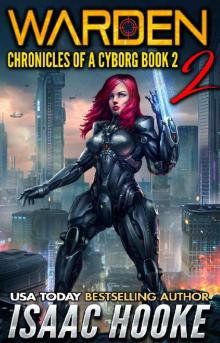 Warden 2
Warden 2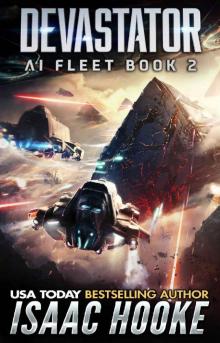 Devastator
Devastator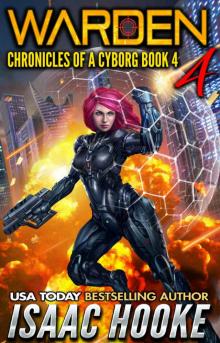 Warden 4
Warden 4 Emperor
Emperor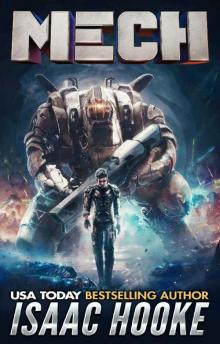 Mech
Mech Conqueror
Conqueror Fighter
Fighter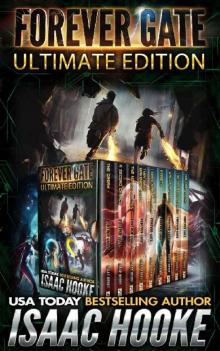 The Forever Gate Ultimate Edition
The Forever Gate Ultimate Edition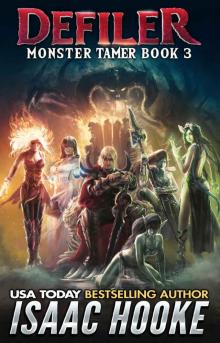 Defiler
Defiler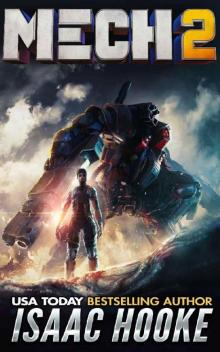 Mech 2
Mech 2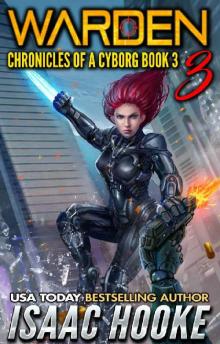 Warden 3
Warden 3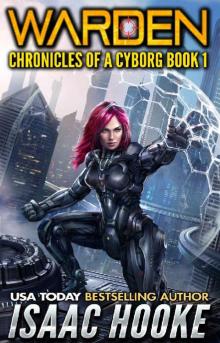 Warden 1
Warden 1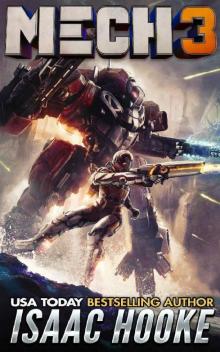 Mech 3
Mech 3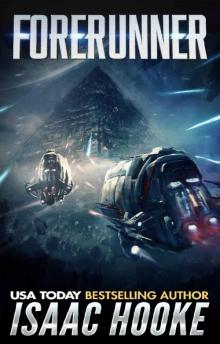 Forerunner
Forerunner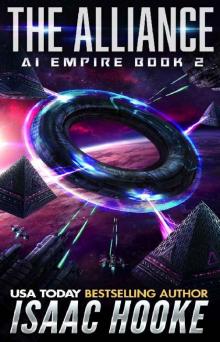 The Alliance (AI Empire Book 2)
The Alliance (AI Empire Book 2)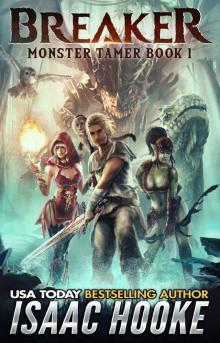 Breaker (Monster Tamer Book 1)
Breaker (Monster Tamer Book 1) Bender of Worlds
Bender of Worlds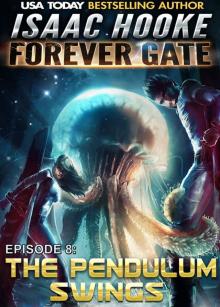 The Pendulum Swings (The Forever Gate Book 8)
The Pendulum Swings (The Forever Gate Book 8)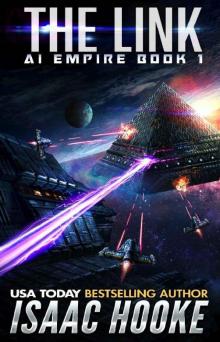 The Link
The Link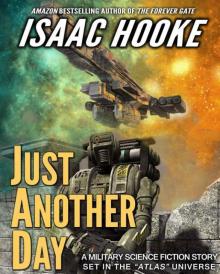 Just Another Day
Just Another Day Star Warrior
Star Warrior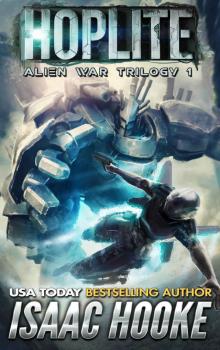 Alien War Trilogy 1: Hoplite
Alien War Trilogy 1: Hoplite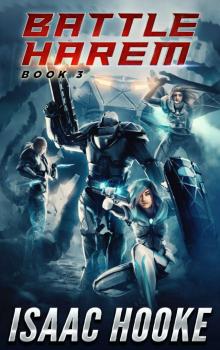 Battle Harem 3
Battle Harem 3 The Ethan Galaal Series: Books 1 - 3
The Ethan Galaal Series: Books 1 - 3 Reloaded
Reloaded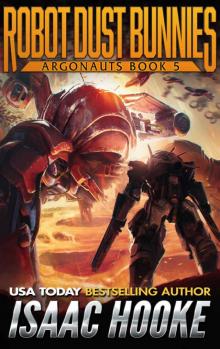 Robot Dust Bunnies (Argonauts Book 5)
Robot Dust Bunnies (Argonauts Book 5) Battle Harem
Battle Harem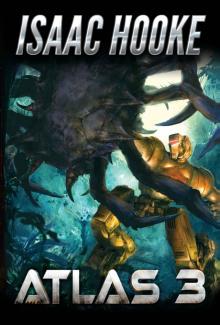 ATLAS 3 (ATLAS Series Book 3)
ATLAS 3 (ATLAS Series Book 3)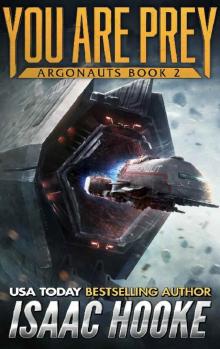 Argonauts 2: You Are Prey
Argonauts 2: You Are Prey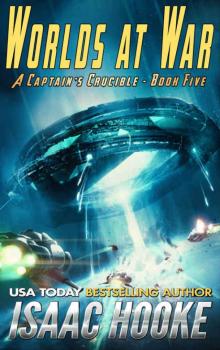 Worlds at War (A Captain's Crucible Book 5)
Worlds at War (A Captain's Crucible Book 5)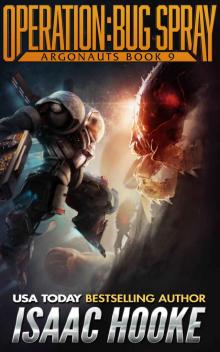 Operation: Bug Spray (Argonauts Book 9)
Operation: Bug Spray (Argonauts Book 9)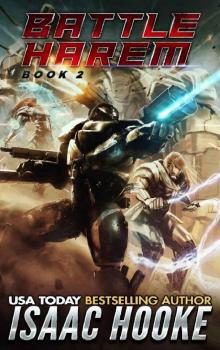 Battle Harem 2
Battle Harem 2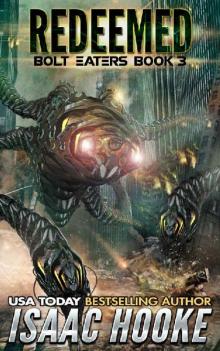 Redeemed (Bolt Eaters Trilogy Book 3)
Redeemed (Bolt Eaters Trilogy Book 3)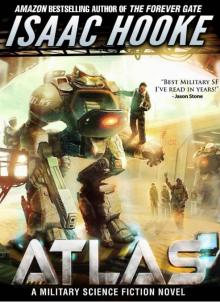 Atlas
Atlas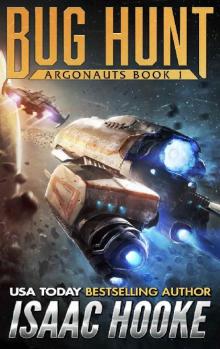 Argonauts 1: Bug Hunt
Argonauts 1: Bug Hunt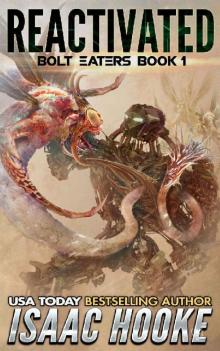 Reactivated (Bolt Eaters Trilogy Book 1)
Reactivated (Bolt Eaters Trilogy Book 1)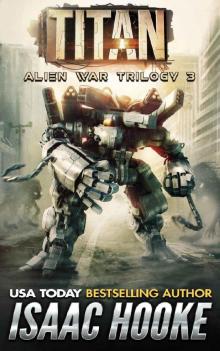 Alien War Trilogy 3: Titan
Alien War Trilogy 3: Titan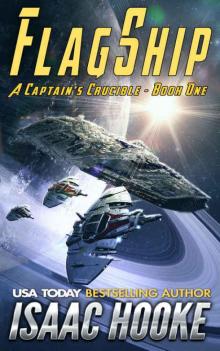 Flagship (A Captain's Crucible #1)
Flagship (A Captain's Crucible #1)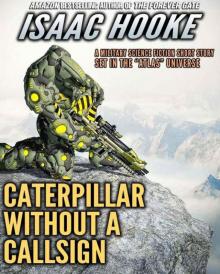 Caterpillar Without A Callsign
Caterpillar Without A Callsign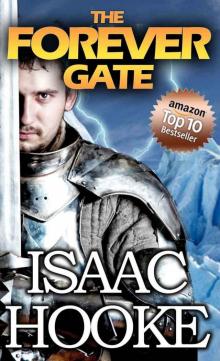 The Forever Gate
The Forever Gate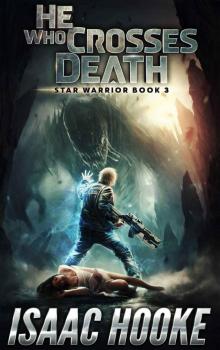 He Who Crosses Death (Star Warrior Quadrilogy Book 3)
He Who Crosses Death (Star Warrior Quadrilogy Book 3) Reforged (Bolt Eaters Trilogy Book 2)
Reforged (Bolt Eaters Trilogy Book 2)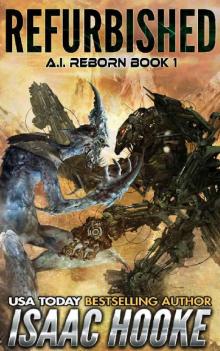 Refurbished
Refurbished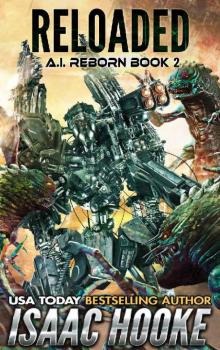 Reloaded (AI Reborn Trilogy Book 2)
Reloaded (AI Reborn Trilogy Book 2)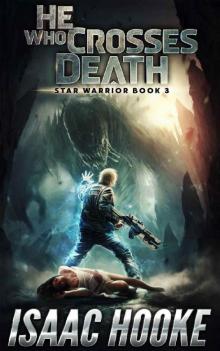 He Who Crosses Death
He Who Crosses Death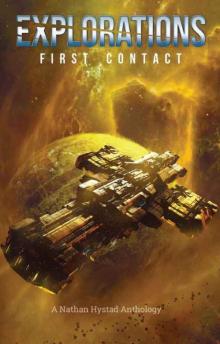 Explorations: First Contact
Explorations: First Contact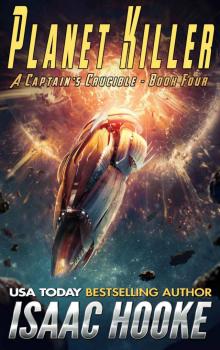 Planet Killer (A Captain's Crucible Book 4)
Planet Killer (A Captain's Crucible Book 4)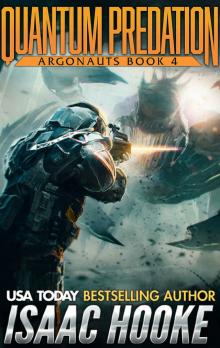 Quantum Predation (Argonauts Book 4)
Quantum Predation (Argonauts Book 4) Clandestine-IsaacHooke-FreeFollowup
Clandestine-IsaacHooke-FreeFollowup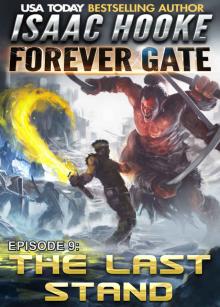 The Last Stand (The Forever Gate Book 9)
The Last Stand (The Forever Gate Book 9) City of Phants (Argonauts Book 6)
City of Phants (Argonauts Book 6)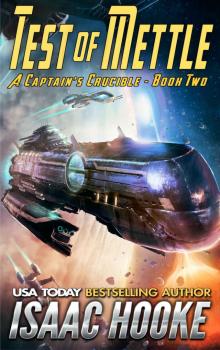 Test of Mettle (A Captain's Crucible Book 2)
Test of Mettle (A Captain's Crucible Book 2)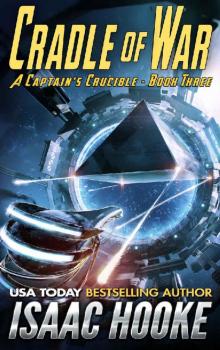 Cradle of War (A Captain's Crucible Book 3)
Cradle of War (A Captain's Crucible Book 3)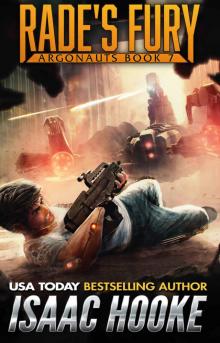 Rade's Fury (Argonauts Book 7)
Rade's Fury (Argonauts Book 7) Rebirth (The Forever Gate Book 6)
Rebirth (The Forever Gate Book 6)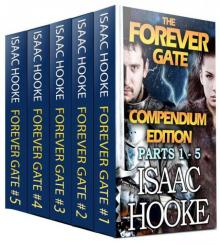 The Forever Gate Compendium Edition
The Forever Gate Compendium Edition Mechs vs. Dinosaurs (Argonauts Book 8)
Mechs vs. Dinosaurs (Argonauts Book 8)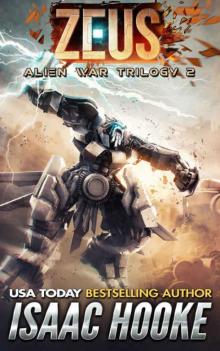 Alien War Trilogy 2: Zeus
Alien War Trilogy 2: Zeus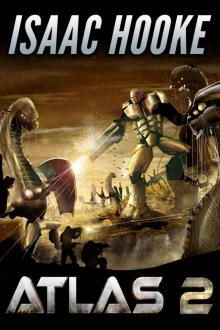 ATLAS 2 (ATLAS Series Book 2)
ATLAS 2 (ATLAS Series Book 2)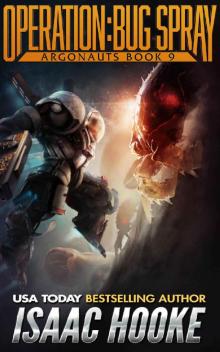 Operation_Bug Spray
Operation_Bug Spray